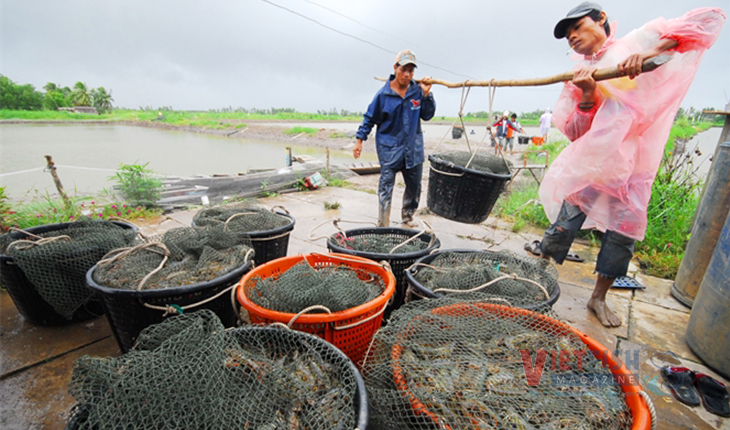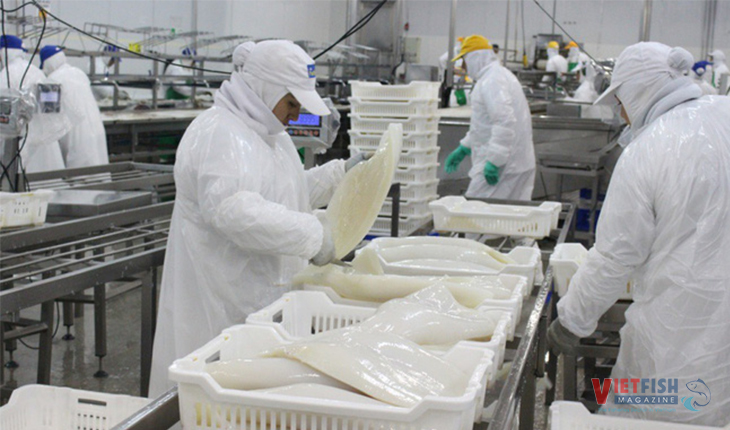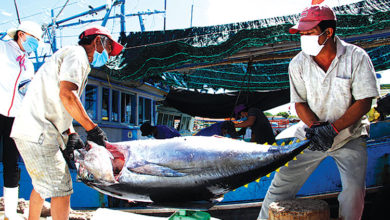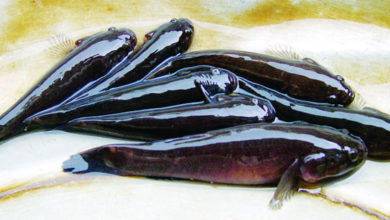New challenges for Vietnam’s tuna exports
Tuna has long been one of Vietnam’s key seafood export products. However, the industry is now facing numerous challenges, ranging from raw material shortages to regulatory barriers in major importing markets.
Multiple obstacles affecting exports
According to Vietnamese tuna processing and exporting companies, a significant challenge is the shortage of raw materials, particularly those with pure Vietnamese origin, caught by domestic fishing vessels.
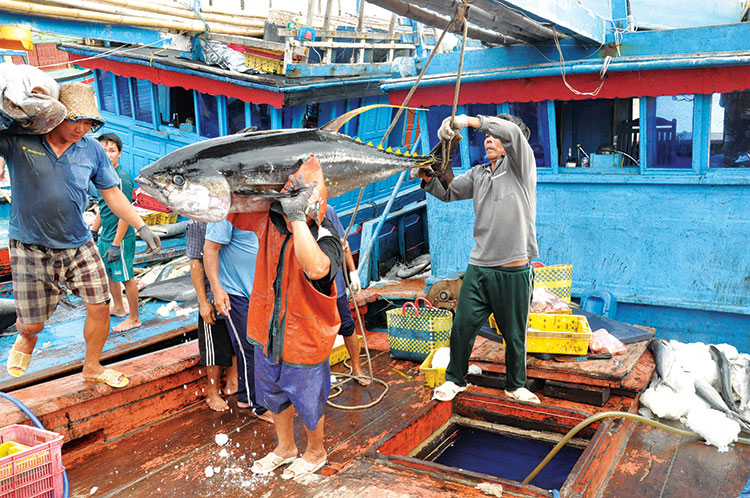
One major factor contributing to this issue is the implementation of Decree No. 37/2024/ND-CP, which amends and supplements certain provisions of Decree No. 26/2019/ND-CP under the Fisheries Law. Effective from May 19, 2024, the decree sets minimum catch size requirements for various seafood species, including skipjack tuna. This regulation has disrupted both fishermen and businesses, as many shipments are now stuck in cold storage due to the inability to obtain catch certification (S/C) and certificate of origin (C/C). As a result, many export orders, especially for canned tuna, have been delayed or canceled, with some contracts even facing penalties.
Nguyen Thi Thu Sac, Chairwoman of the Vietnam Association of Seafood Exporters and Producers (VASEP), stated that many batches of tuna caught in provinces affected by the regulation have been left in limbo, unable to obtain necessary export documents from local fisheries authorities. Fishermen are struggling because buyers are hesitant to purchase their catch, leading to disruptions in fishing operations. Some have even been forced to reduce their fishing activities.
Moreover, companies relying on imported raw materials for processing are now at a disadvantage, as they cannot benefit from tariff preferences under the EU-Vietnam Free Trade Agreement (EVFTA). This has weakened the competitiveness of Vietnam’s canned tuna products in the European market.
In response, Deputy Chairman of the National Assembly Le Minh Hoan emphasized that the minimum catch size regulation for skipjack tuna in Decree No. 37/2024/ND-CP is essential for preserving marine resources, complying with recommendations from the European Commission (EC), and aligning with global sustainable fisheries management practices. However, to ensure that traditional fishing activities and exports are not overly disrupted, the Ministry of Agriculture and Rural Development has proposed that the government revise the decree through a fast-tracked process. The amended decree is expected to be issued by April 2025.
Turning challenges into opportunities
Despite these difficulties, Vietnam’s tuna industry still holds significant potential in international markets. According to the International Trade Centre (ITC), Vietnam is currently the second-largest tuna supplier to the U.S., trailing only Thailand. The U.S. remains a key market for Vietnamese seafood, but recent changes in American trade policies may impact export dynamics.
Nguyen Thi Van Ha, a tuna market expert at VASEP, noted that on his first day in office, U.S. President Donald Trump signed an executive order imposing additional tariffs of 10% on Chinese imports starting February 4, along with a 25% tariff on imports from Mexico and Canada. These measures could drive up the price of canned tuna in the U.S., as retailers may have to pass the increased costs on to consumers.
Notably, canned skipjack tuna in oil imported into the U.S. is currently subject to tariffs ranging from 12.5% to 35%, unless the exporting country benefits from a trade agreement that grants tariff reductions. Under the U.S.-Mexico-Canada Agreement (USMCA), Mexico and Canada enjoy preferential tariffs, but if trade negotiations fail, their tuna exports to the U.S. could decline. Similarly, additional tariffs on Chinese tuna exports could create opportunities for Vietnam to expand its market share in the U.S.
Former Deputy Minister of Foreign Affairs and former Vietnamese Ambassador to the U.S. Pham Quang Vinh previously pointed out that the trade deficit between Vietnam and the U.S. is a natural consequence of economic interdependence. If the U.S. restricts imports from China, it will need alternative suppliers, and Vietnam is well-positioned to benefit.
Although Vietnam’s tuna export industry is currently facing numerous challenges, strategic adaptation could allow Vietnamese businesses to seize new opportunities, expand their market presence, and strengthen their global competitiveness.
VFM


